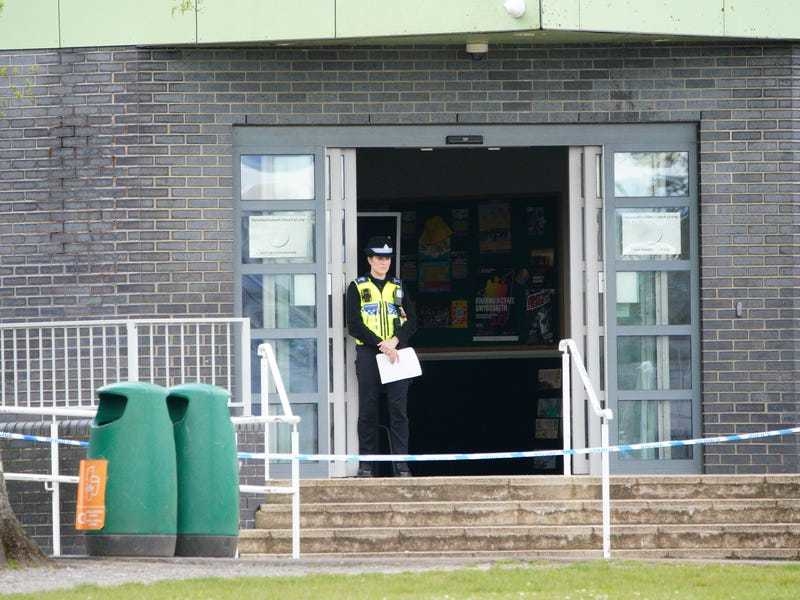Detective Superintendent Stuart Gull, the senior States police officer who chairs the Jersey Multi-Agency Public Protection Arrangement scheme, said communication with potential victims has been improved following the incident.
- 29.38% Violence
- 28.36% Sex
- 15.19% Domestic violence
- 5.7% Violence and domestic violence
He spoke out after it emerged yesterday that a criminal – known only as Mr X – who was under the JMAPPA scheme, raped a woman that he knew seven weeks after being released from prison. JMAPPA was set up in 2011 to manage sexual, violent or dangerous offenders together with other potentially dangerous people.
Following the rape, a serious incident review conducted by an independent safeguarding expert identified nine key actions which have since been completed.
Det Supt Gull said: ‘In this particular case we identified and engaged with the victim.
‘She was known to agencies. She was identified at potential risk.
‘What the report highlighted was that the level of engagement could and should have been stronger and earlier.
‘If we had engaged earlier and much stronger it might have given us some better insight into the actual risk that this man presented.’
Det Supt Gull said communication with victims has been improved, however he added that he was reluctant to go into greater detail of the measures implemented in case it led to the identification of the victim in the Mr X case.
After leaving La Moye, Mr X, who had served more than 12 months for grave and criminal assault, was not subject to any statutory requirements.
‘He agreed to maintain voluntary contact with the Probation Service under the JMAPPA scheme, however at a review meeting it transpired he had not maintained contact.
Despite eight offenders under the programme re-offending, Det Supt Gull said that overall JMAPPA has had a successful year.
Figures released yesterday found that almost 90 per cent of high-risk offenders managed under the programme did not re-offend last year – a rise of almost five per cent from 2013.
Det Supt Gull said: ‘We are currently managing 77 high risk offenders in the community. We can’t subject them all to 24-7 surveillance – it’s not feasible.
‘Inevitably when dealing with this number of offenders there will be occasions of re-offending.
‘It is regrettable and why we commissioned the serious incident review.
‘The recommendations did not really give us anything that we did not already know.
‘They have ensured we have sharpened up our processes as best we can.’
THE creation of the Jersey Multi-Agency Public Protection Arrangement – JMAPPA – marked a significant step forward in protecting Islanders from those known to pose a risk.
Created in 2011 to assess and manage sexual, violent and dangerous offenders, as well as those described as ‘potentially dangerous’, the body brings together senior representatives from the police, Probation, Customs and Immigration, Health, Education, Social Security and Home Affairs, as well as parish Constables and housing providers.
These professionals are the eyes and ears of the community and ensure that these various bodies share information to make sure that they can build up as complete a picture of who poses a risk and where as possible.
They are tuned into a great many areas of Island life to make contact with victims and offenders to keep us safe.
The JMAPPA annual report published today paints a positive picture and highlights many areas of success.
It revealed that almost 90 per cent of high-risk offenders managed under the programme did not re-offend last year – a rise of almost 5 per cent from 2013.
As reported today, however, one violent offender, Mr X, slipped through the net and committed a rape seven weeks after being released from custody.
It is a sad and inescapable truth that no amount of surveillance and multi-agency working can eliminate the risk posed by dangerous individuals. All convicted criminals will be released after serving their sentences for crimes from grave and criminal assault to rape and even murder.
Lessons have been learned from the case of Mr X and JMAPPA now works more closely with victims.
However, an inquiry into what went wrong in that case identified a hole in the law.
Mr X was under no legal obligation to report to the authorities on his release, but, like many others, was doing so voluntarily.
Parole and licensed-release schemes have been considered in the past and should be again. In a small Island, a proactive police force, supported by many others sharing their knowledge and expertise, is keeping us safe.
Their work also relies on Islanders working with them, passing on information about offenders or those who might pose a risk. Many will today want reassurance that the law is as strong as it needs to be.







